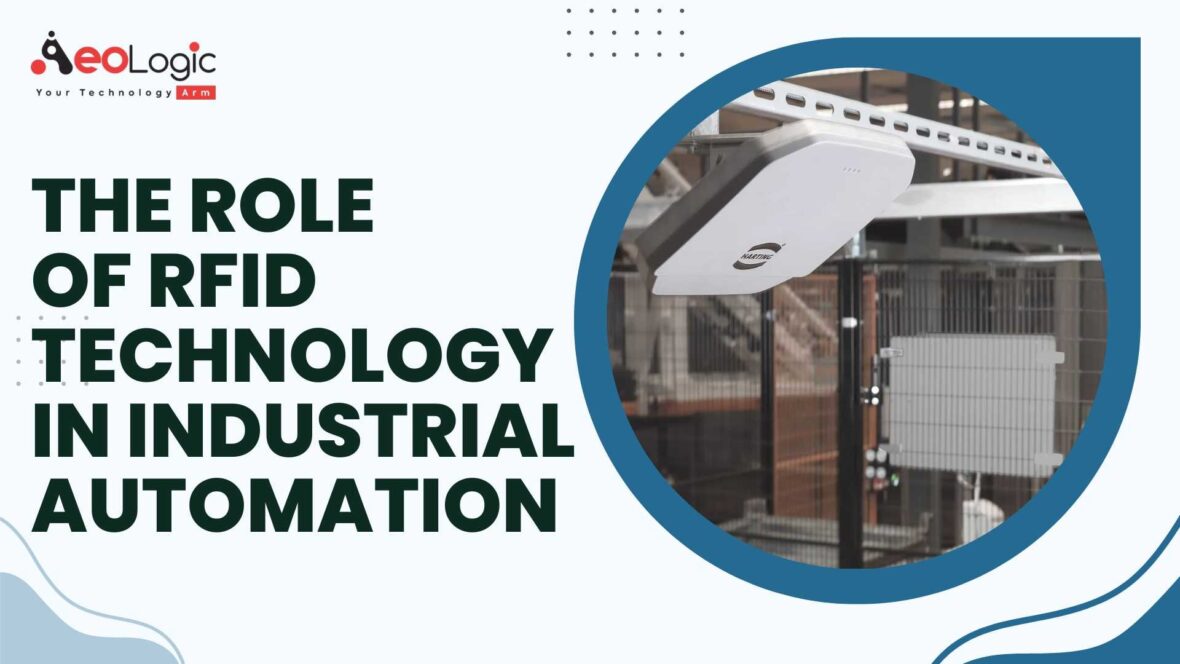Summary
The role of RFID technology in industrial automation makes it possible to improve the flow of the manufacturing process, from the entry of goods to the dispatch to the end customer. This article talks about the necessity of knowing the real-time availability and location of products, batches, and pallets to optimize the level of customer service.
Introduction
Nowadays, the term industrial automation is key to improving the possibilities of companies. More and more companies of all sizes and industries are executing various technologies to automate their supply chain. Especially, the role of RFID technology in industrial automation is changing landscapes.
What is Industrial Automation?
When we discuss the role of RFID technology in industrial automation, we refer to the application of various technologies to control and monitor industrial processes, so that we can mitigate human intervention and intensify the amount of data we collect in the processes to optimize them.
Automation means improving cycle times, productivity, the quality of the production process, and the competitiveness of the company. Working on this last aspect is of huge relevance at a time when we are facing more and more competitors.
Globalization has favored the imports and exports of products, hence, making the automation process a key and differentiating element to stay competitive and efficient as compared to your competitors.
How Does Industrial Automation Work?
To carry out the role of RFID technology in industrial automation process it is necessary to apply different technologies, depending on the requirements of each company or the level of automation they want to achieve.
The goal of automation is to execute repetitive processes that can be done correctly in a more autonomous way. It also seeks to enhance the production cycle times of an article, allowing it to produce more in less time. Thereby, reducing the errors. Without human intervention and with the data gathered, the products are more uniform from batch to batch.
Types of Industrial Automation
There are three categories of industrial automation:
1. Fixed automation – When we have huge volumes of identical parts production. This type of automation has very low costs. However, it does not contemplate new configurations for the production of different products. It is representing a great problem at the moment in which the product becomes obsolete or the part being manufactured has to suffer design alterations.
2. Programmable automation – This mode of automation is associated with low-volume production. The potential to reconfigure and readjust machines and software enables new customization series to be customized.
3. Flexible automation – It is a hybrid of the other two types of industrial automation, with their respective benefits. The production cadence is assimilable to the systems of the first while enabling room for small modifications throughout the process as in the second.
Where Can We Apply Industrial Automation?
As we have stated, today the role of RFID technology in industrial automation processes is possible in companies of all kinds. Ranging from the smallest to companies with very complex production chains.
Its implementation is very imperative in the automotive industry, the food or metallurgy sector. Additionally, in the chemical and pharmaceutical industry. RFID and industrial automation
What type of technologies can we use to automate companies? There are different types, from devices, machines, and robots to even software. The role of RFID technology in industrial automation is to allow many processes or phases of the supply chain to be automated.
RFID allows identifying and transmission of information about an object, through radio frequency waves. To do this, we require an RFID tag, which enables us to store, transmit or identify this data.
Boost your business with our RFID Solutions!
To read this tag and the data contained, we require a reader and an RFID antenna, which will be identifying the tag and remotely read the content of the smart tag attached to the object. Relying on the size of the warehouse and its configuration, it may also be essential to install reading arches or RFID portals.
The role of RFID technology in industrial automation is one of the applications that allow a higher level of industrial automation. It is very important in certain processes of the supply chain, very frequent processes that with this technology avoid errors and human intervention.
Traceability and Production Control
Subsequently, when manufacturing a product, we need materials for its final production. Also, for sorting, distributing within the factory, and tracking parts or materials, RFID tags, and RFID devices will allow quick and automated identification of all stock.
A benefit over barcodes is that RFID technology is allowing labels to be read in large quantities, without the requirement to open packages or visual contact, speeding up and increasing inventory accuracy. Furthermore, the entry and exit of products within the warehouse are becoming easier with this technology.
Logistics
RFID is the most broadly used technology in the world to automate and control logistics processes.
Logistics is a complicated process that involves monitoring each of the products that come in and out of the warehouse, alongside those that are returned. With RFID, sending erroneous orders disappears in almost 100% of logistics processes.
With the role of RFID technology in industrial automation, we can know if the loaded products are correct or not for the shipment in progress. If not, through notifications we can be alarmed if an expedition is wrong before sending it.
Point of Sale
In the store, we can also be able to control a lot of information about the products. The RFID tags enable total control of the stock, avoiding stock breakages or unknown losses, in addition to managing quick replenishment.
In addition to it, RFID tags have another advantage over barcodes. By enabling more data storage, it is not just the business that benefits, the customer can obtain the entire traceability of the products, something highly valued in the fashion retail industry.
Wrapping Up…
You see that the role of RFID technology in industrial automation has multiple advantages. RFID enables knowing the flow of all operations, optimizing the supply chain at several points, even critical points, and decreasing the waste of items. This solution implies a reduction in operating costs and an increase in profits.
Do you want to implement the best RFID solutions? You can start to revolutionize your supply chain now! At Aeologic Technologies we deliver the whole solution, and we can adapt to the requirements of our customers and the particularities of each supply chain. Contact now!






